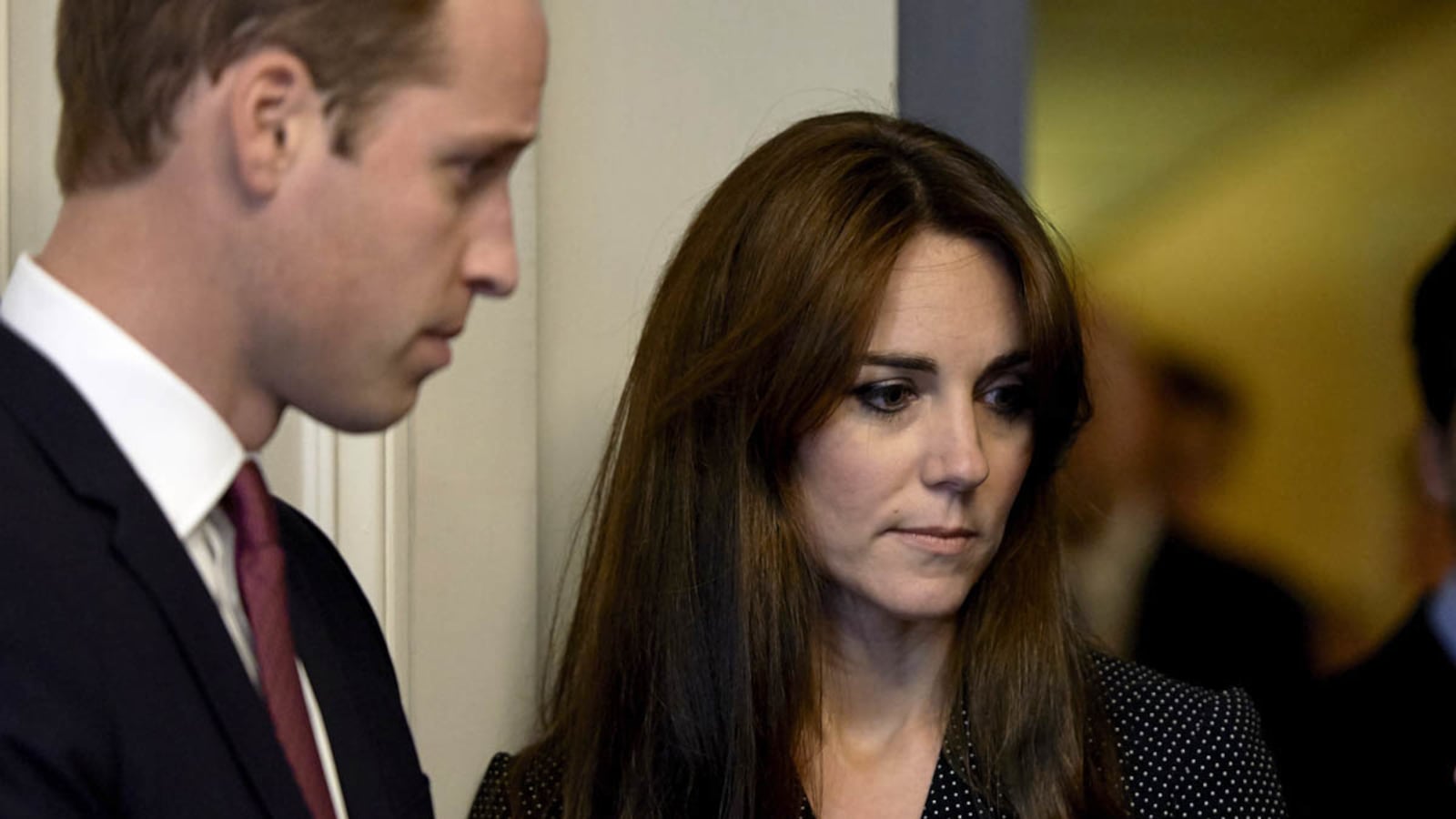The British people are well used to Prince Charles having his say on political issues—in recent years he has compared Putin to Hitler and argued that the war in Syria was caused by climate change—however, it appears his son Prince William and daughter-in-law Kate Middleton may now have the bug too.
Today, Kate has penned an article on the Huffington Post to launch the Young Minds Matter campaign on the politically charged subject of juvenile mental health. In her piece, Kate argues that “the mental health of our children must be seen as every bit as important as their physical health” and urges “schools and communities to play their full role to help children who are struggling in ways that are not always easy to see.”
Given that Kate has up till now has maintained an almost total silence on, well, pretty much everything, this is a powerful, full-throated intervention into the public arena on some pretty hot public policy.
An argument could also be made that Kate’s piece in the HuffPo is merely about a new charitable drive, not a direct attack on British government policy. However, as the palace must know, Kate’s words will be used as a stick which campaigners will gleefully use to beat the government for its woeful underfunding of juvenile mental heath services.
Yes, Kate is urging a non-political approach in which families and communities listen to troubled kids and adjust mindsets, but she is also effectively inviting journalists to write about the British government’s neglect of juvenile mental health.
For example, a recent report by The National Association of Head Teachers (NAHT) carried out a snapshot survey of 1,455 English head teachers and found that a fifth of their pupils have a mental health problem before the age of 11. Two-thirds of schools said they cannot deal with such issues. 43 percent of head teachers said they had been finding it harder to access services for pupils with mental illness due to specialist child and adolescent mental health services becoming completely overwhelmed. 64 percent of schools do not have access to a counsellor on-site.
The big issue, of course, is public funding of these services, and Kate again took square aim at this in her piece, writing, “When families are short of time or money it is not always easy to know where to look for help or advice.”
And yesterday, Prince William made what was widely interpreted as an intervention into the biggest political question of the day in Britain, the forthcoming referendum on whether or not the country should remain part of the European Union.
William told a gathering of diplomats in London that Britain’s ability to work with other nations was the “bedrock of our security and prosperity”, in remarks that have been seen as endorsing the U.K.’s continued membership of the European Union.
Prince William told recipients of the inaugural Diplomatic Academy awards: “In an increasingly turbulent world, our ability to unite in common action with other nations is essential. It is the bedrock of our security and prosperity.”
The palace was quick to shoot down suggestions that William was getting political, and said the speech was “not expressing a political view.” Few will buy that line, to be honest.
But it is fair to say that William and Kate are both seeking to make their political points with the subtlety of William’s grandmother, not the bluntness of his father.
The Queen appeared to intervene in the Scottish independence referendum when she told a group of well-wishers outside Sandringham church to “think very carefully about the future” the day before the vote.
It was reported that the Queen was urged to speak after an appeal from Downing Street, as the Out campaign gained ground, but this allegation has never been proven or acknowledged.
There is little doubt that the Queen was delighted with the result when the Scots voted not to leave the U.K. David Cameron was caught on an open microphone telling Michael Bloomberg that she “purred” with happiness down the line when he phoned her with the result.
The truth is, monarchs have always had political influence. Why else would the Queen have a weekly, private audience with the Prime Minister were it not for an opportunity to influence him or her?
Essentially the Queen has been very, very clever—cleverer than her blundering son at any rate—at making it appear like she is above party politics. Kate and William would do well to study her example.
George Orwell, in his wonderful essay “Why I Write,” said that one of the reasons he wrote was “Political purpose,” but he went on, “Using the word ‘political’ in the widest possible sense. Desire to push the world in a certain direction, to alter other peoples’ idea of the kind of society that they should strive after.”
This is the kind of politics William and Kate seem to be wisely embracing.






